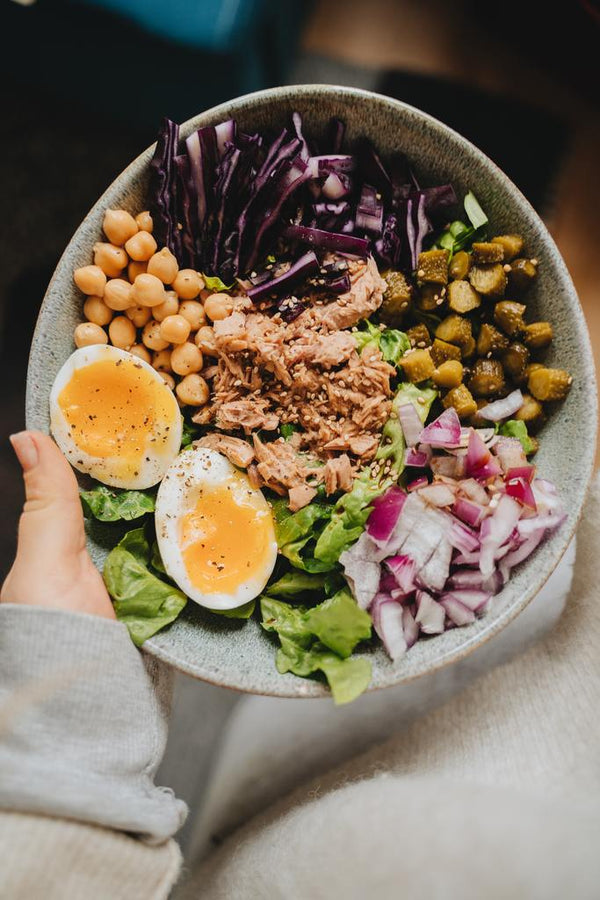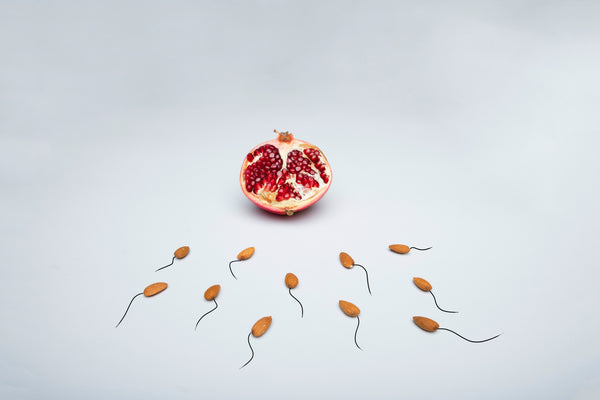
Vitamin C
Vitamin C is a powerful antioxidant that helps protect reproductive cells from oxidative stress. It plays a vital role in collagen production, supports normal immune function, contributes to iron absorption, and is involved in normal energy metabolism.
Female Fertility
Vitamin C contributes to normal collagen formation, supporting the structure of the endometrium and cervical secretions that aid conception. As an antioxidant, it helps reduce oxidative stress within the ovaries. Some studies suggest a role in supporting normal progesterone levels during the luteal phase, which may be relevant to ovulation and implantation.
Male Fertility
Vitamin C is one of the main antioxidants in seminal plasma. It helps protect sperm DNA and cell membranes from oxidative damage and contributes to maintaining sperm motility and morphology. Vitamin C also regenerates other antioxidants, such as vitamin E and glutathione, within seminal fluid.
Pregnancy
During pregnancy, vitamin C supports the normal function of the immune system and contributes to collagen synthesis, important for tissue strength and elasticity. It enhances non-heme iron absorption, which is crucial for maternal iron status. Vitamin C is also involved in connective tissue formation, relevant to the developing placenta.
Postnatal
After birth, vitamin C supports tissue repair and immune recovery. It helps with iron absorption during breastfeeding and contributes to maternal antioxidant status. Its role in collagen formation also supports skin health during the postnatal period.
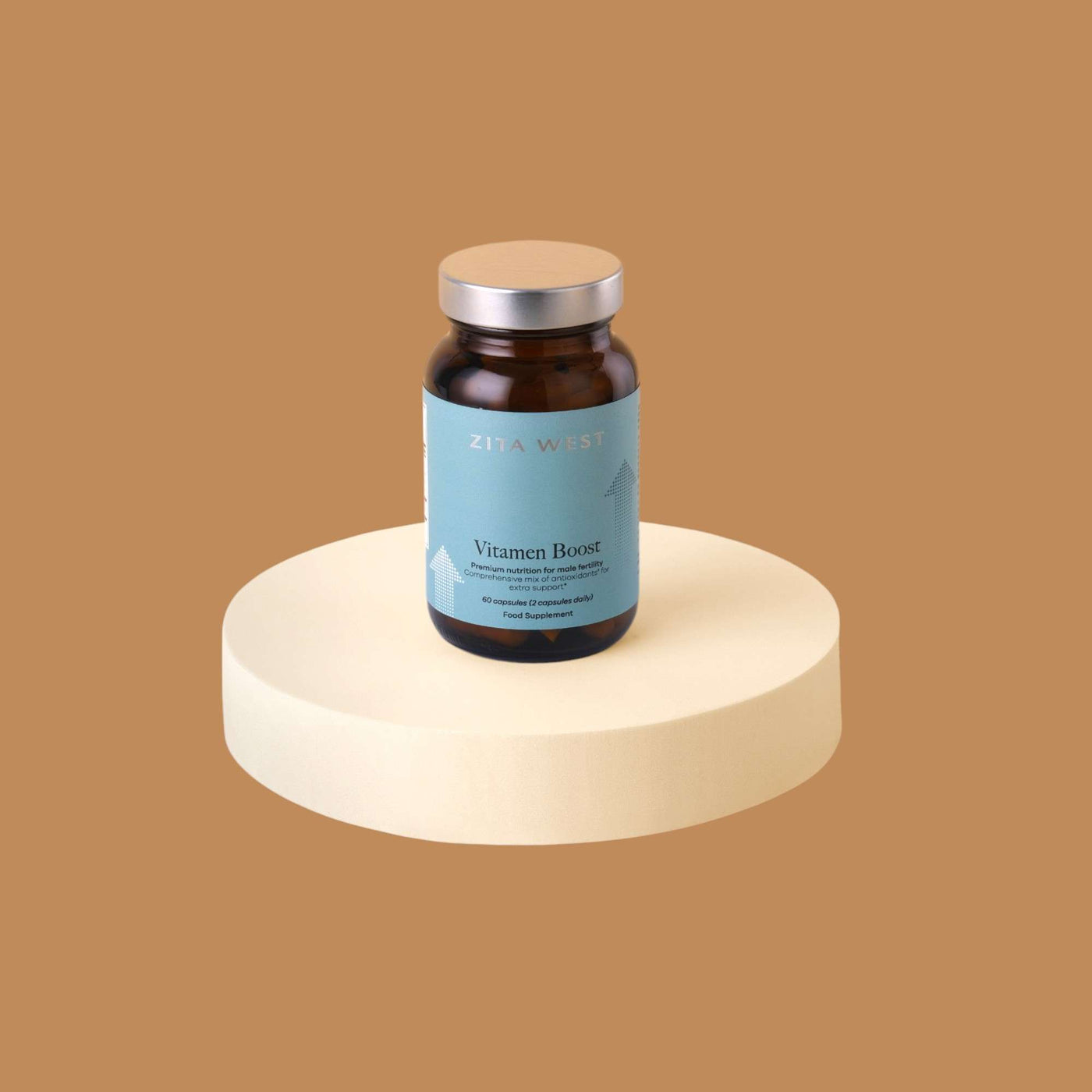
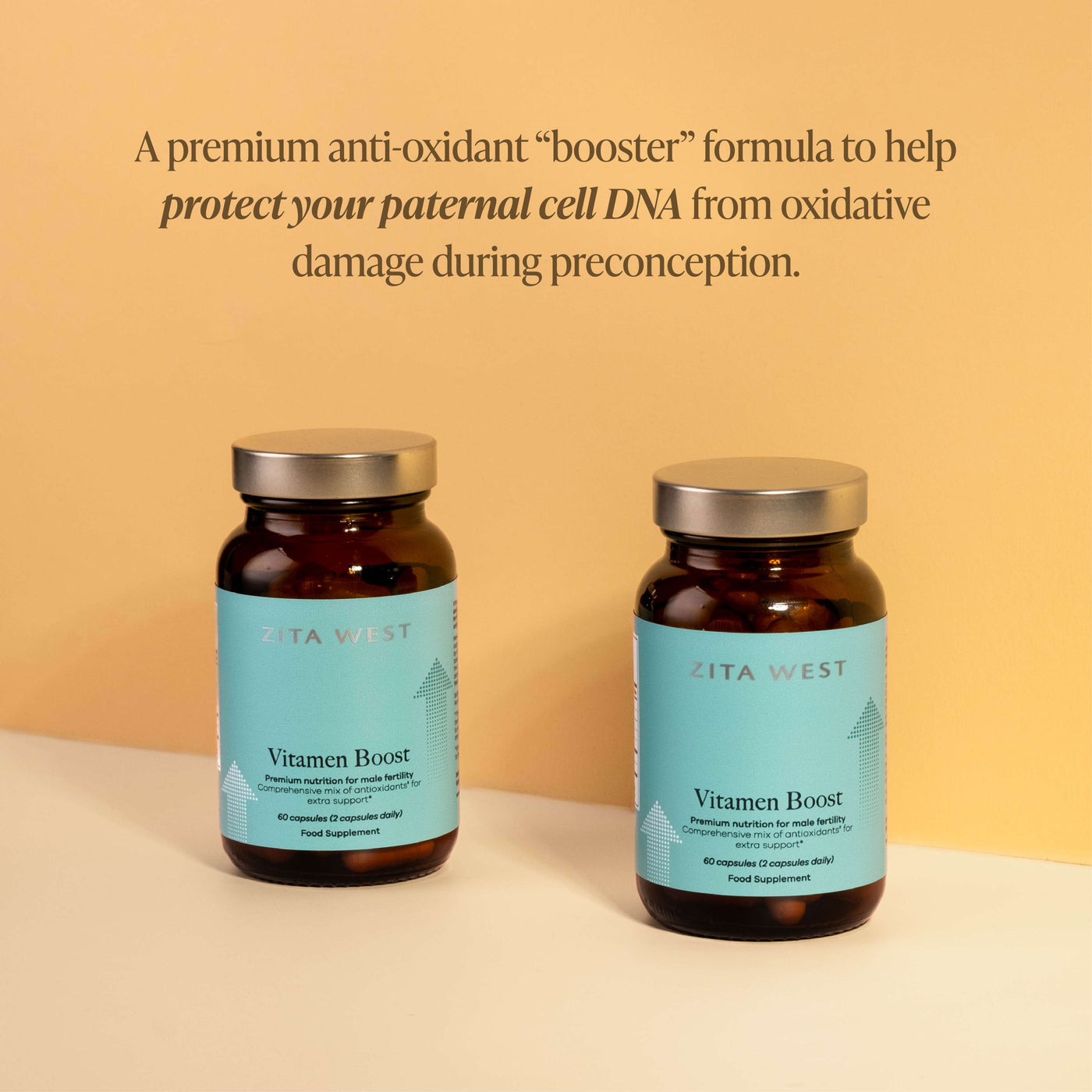
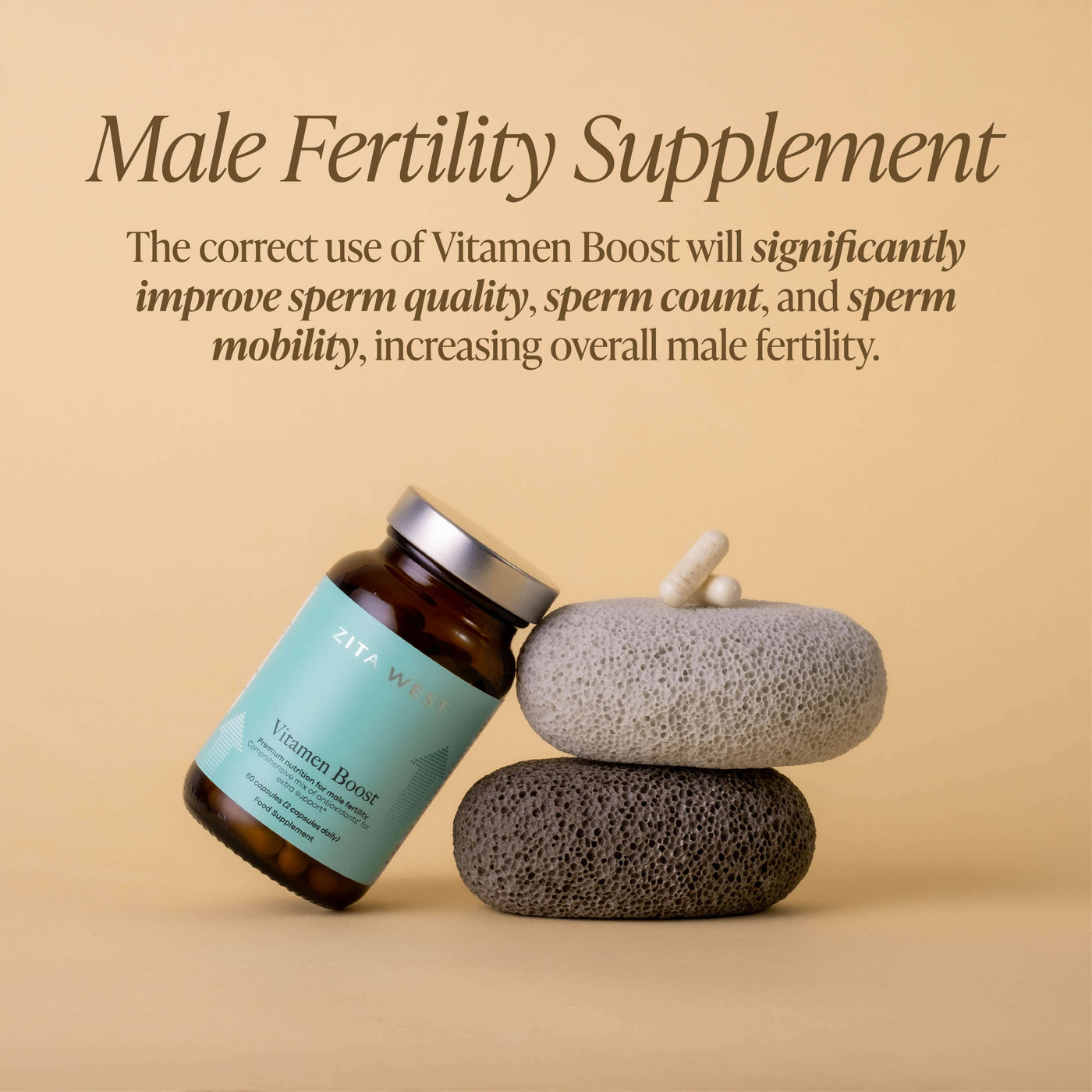
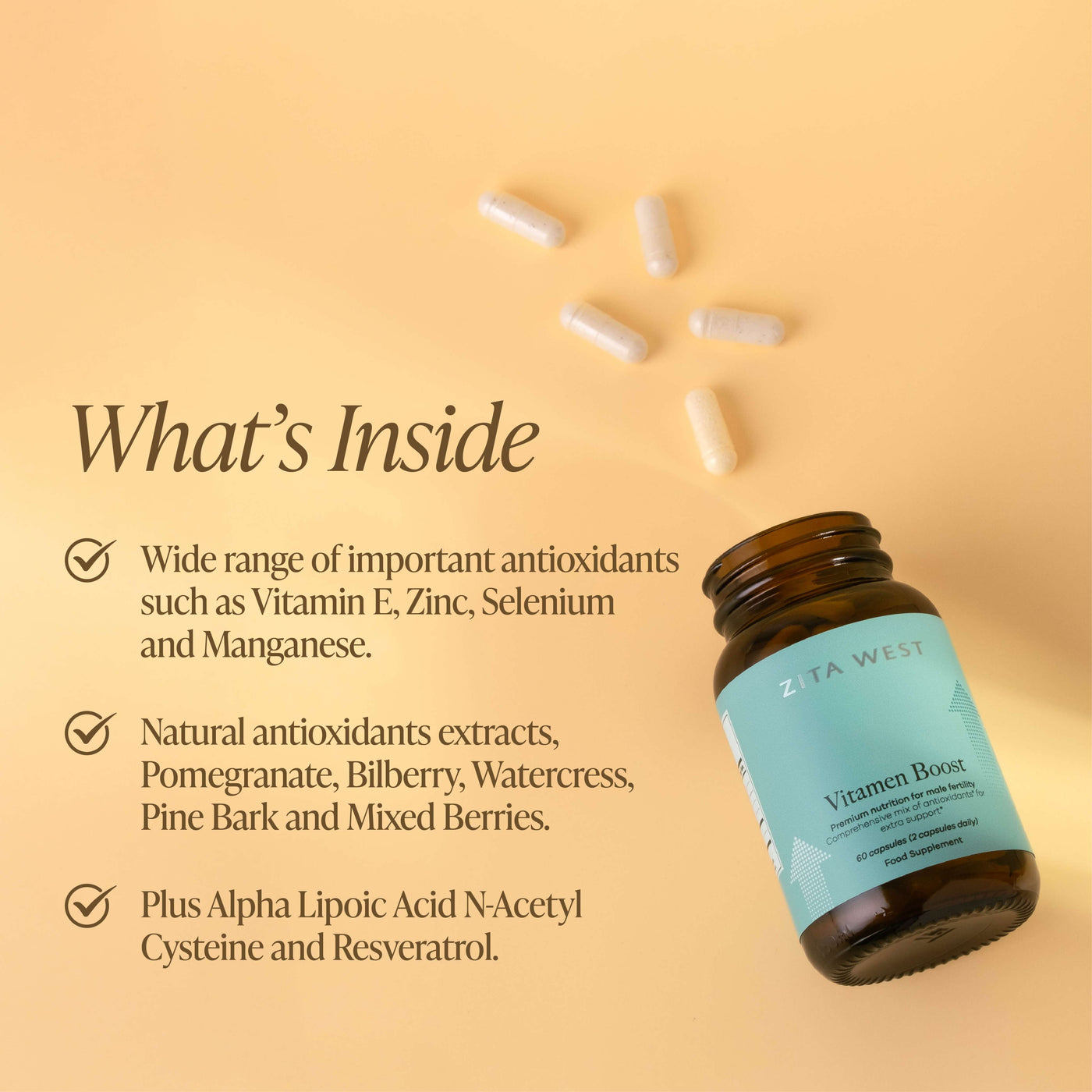
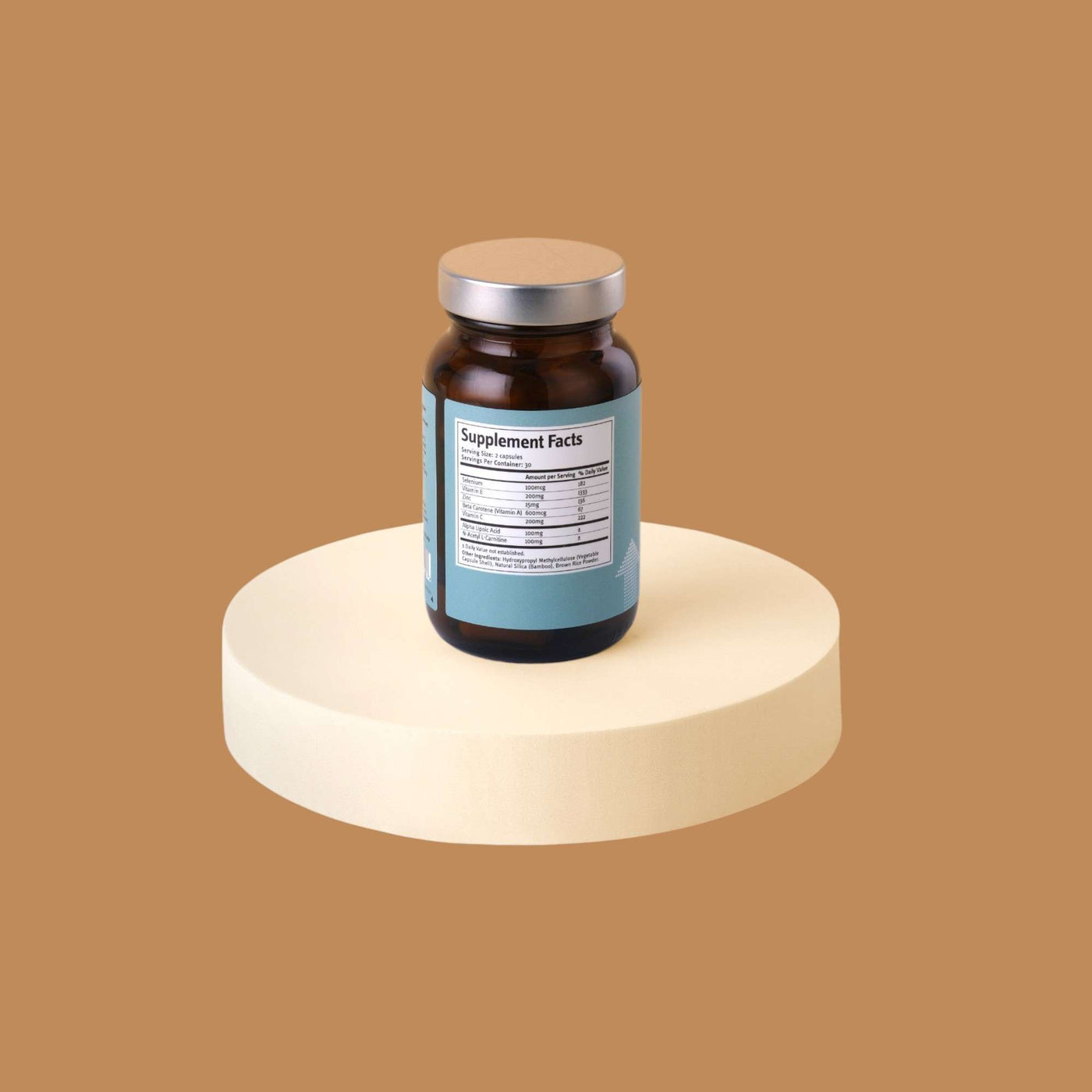
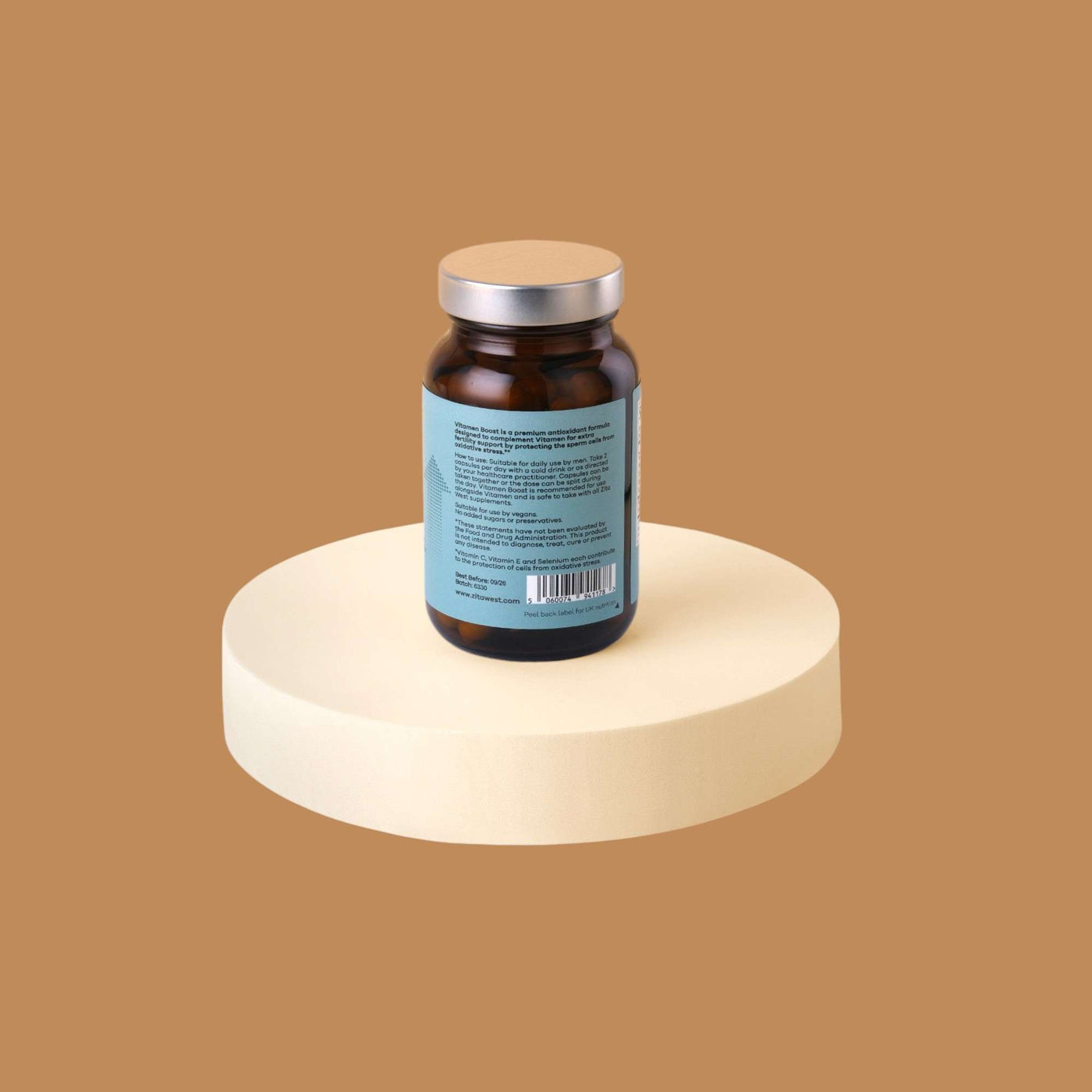






.jpg?v=1738933637628&options=w_1000)
